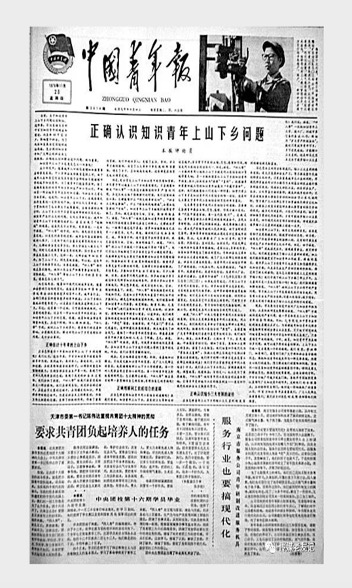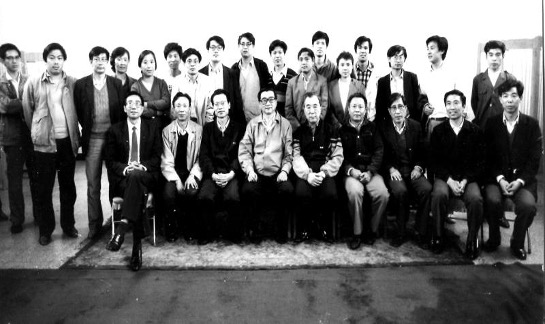
Xu Zhuqing (徐祝庆), the former director and editor-in-chief of the China Youth Daily and a key force at the newspaper in the period of journalistic ferment that came in the early 1980s in China, passed away in Beijing on January 5.
Announcing the news on Weibo the following day, photojournalist He Yanguang (贺延光) recalled that under Xu’s leadership a relaxed atmosphere had prevailed at the newspaper: “In that environment, journalists and editors could discuss, dispute and contend with one another, and our concepts about journalism became clearer. The newspaper held its bottom line [professionally] through this process, earning the respect of its readers and peers.”
“It can be said that the period when you were in charge was the most glorious period at China Youth Daily,” He said of Xu.
Founded in 1951 as the flagship publication of the Chinese Communist Youth League (中国共产主义青年团), the Chinese Communist Party organization dedicated to indoctrinating and training youth, the newspaper was shuttered for a period of 12 years during the Cultural Revolution. It was finally relaunched on October 7, 1978, just weeks ahead of the 3rd Plenary Session of the 11th Central Committee of the CCP, the meeting at which Deng Xiaoping would formally unveil his plans for economic reform and opening.
The newspaper, which benefitted from the enduring influence of its former general secretary, Hu Yaobang (胡耀邦), the reform-minded leader of the CCP, became a fountainhead of experimentation among the country’s seven major national (全国性) dailies at the time. Defined by the phrase “eliminating chaos and returning to normal” (拨乱反正), it was a period of much deeper reflection on the lessons of the Cultural Revolution.
Xu Zhuqing, who had joined the China Youth Daily in the late 1970s after having worked in the International Department of the People’s Daily, led the paper through what would later be seen as a golden age. He set the tone for much more critical coverage early on, in November 1978, with a piece from his own pen called “Correctly Understanding The Problem of Sent-Down Youth” (正确认识知识青年上山下乡问题). The story, appearing on the front page of the China Youth Daily, exposed the ills of the so-called “Down to the Countryside Movement” (上山下乡运动), which from the late 1960s to the early 1970s had sent close to 20 million urban youth to toil in the countryside in order to be “re-educated” by poor peasants.

In the midst of plans by China’s State Council in 1978 to gradually narrow the scope of the movement, Xu story exposed uncomfortable truths about the policy. For millions of sent-down youth still struggling to find their way back to the city and to normal lives interrupted years earlier, the article was inspirational. It ignited nationwide discussion about the movement, and applied direct media pressure to the State Council conference on the policy as it considered bringing it to an end.
Li Datong (李大同), the founder and former chief editor of China’s Youth Daily’s Freezing Point supplement, known in the early 2000s for continuing the paper’s tradition of tougher reporting, said in a tribute to Xu Zhuqing on January 6, that he remembered Xu granting him maximum freedom in pitching stories, as well as complete autonomy as Freezing Point was launched as a special features section of the paper in 1995.
“I had a level of freedom I had never experienced before,” Li recalled. “A boss not even asking about the topic [of my report] before it was in progress, and then just looking at the proofs. We really could publish whatever we wanted. Almost everything went straight to press.”





















